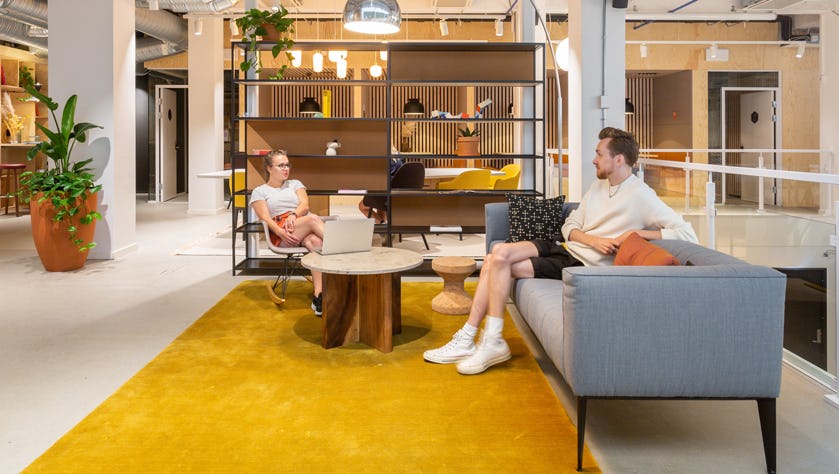
From investing in top-notch technology to re-evaluating company culture, we look at ways businesses can smooth the transition into hybrid working
One of the major shifts the working world has seen over the past 18 months is the move towards a more flexible way of working. But after more than a year of working from home – where we embraced the zero commute and better work/life balance – it’s evident that many people missed the buzz of the office environment and recognised the collaboration, connectivity and creativity benefits of working around others.
A 2021 study by McKinsey showed that 90% of businesses now want to adopt a hybrid way of working, where employees can choose between working from home (WFH), working from the main office and working from a neighbourhood coworking space.
We look at ways companies can manage the transition from being solely office based to offering a more flexible way of working.
Employ tip top technology
At the start of the pandemic, when the world was forced to adapt to remote working, technology was at the core of its success. Now the hybrid way of working is becoming the norm, companies must continue to invest in technology to make sure it’s safe, secure and up to the job.
“The shared workplace only ever existed because it contained the materials and equipment workers needed but didn’t have at home: typewriters, computers, photocopiers and filing cabinets to store countless kilometres of paper,” says Mark Dixon, Founder and CEO of IWG in its latest white paper. “But today, digital technology puts into every white-collar worker’s hands all the tools they need to do their job. The office is no longer a defined physical space, but rather it has become digital.”
When a distributed team works in numerous locations, having access to safe, secure networks has to be of the utmost importance. All Spaces locations have top level network security as standard.
Cultivate company culture
Research by Accenture showed that a massive 83% of employees want the future of work to be hybrid. This is an opportunity for companies to re-evaluate their corporate culture and integrate new and improved policies for hybrid working, with employee wellbeing at the top of the agenda.
“The first thing we tell companies is that they have to be intentional about all this,” says Jane Sparrow, co-founder of consultancy The Culture Builders, in IWG’s white paper. “They need to put time and strategic thought into how they’re going to evolve their culture.”
Downsize the office
As the working world changes, businesses will have to reassess their real estate needs. “There’s a chance for companies to fine-tune their real estate footprint to be more appropriate to the way the next generation of employees are looking to work,” says Doug Demers, Managing Principal at B+H Architects and the Centre for Advance Strategy, in IWG’s white paper.
Hybrid working is an opportunity to downsize and consider the hub-and-spoke model, where companies have a smaller head office, and provide their employees with access to a cluster of satellite offices and coworking spaces in local neighbourhoods. It helps to reduce a company’s carbon footprint and also plays into the 15-Minute City concept, an urban planning concept where people can live, work and play within a 15 minute radius of their homes.
Work towards a frictionless future
Of course, in this new world of work, there’s no one-size-fits-all model. Companies have to respond to the needs of all their employees. This is where having a frictionless system in place is key. A frictionless system means all employees will have secure digital access to the company network, so they can work from anywhere, but they’ll also feel connected to their colleagues, as well as engaged and secure in their career path.
“Companies that allow their employees to be successful and productive anywhere are likely to attract and retain the best talent,” says Christie Smith, Accenture’s Global Lead of Talent & Organisation/Human Potential. Businesses who are reluctant to adopt a more flexible way of working could not only risk missing out on top-notch talent but might also see a higher rate of employee turnover.
Find out how Spaces can help your company transition towards a hybrid solution.
Enjoy this? You might also like these Spaces magazine stories:
Share this article
 Read now Why upskilling is crucial for hybrid teams
Read now Why upskilling is crucial for hybrid teams
 Read now How to build resilience at work in 2022
Read now How to build resilience at work in 2022